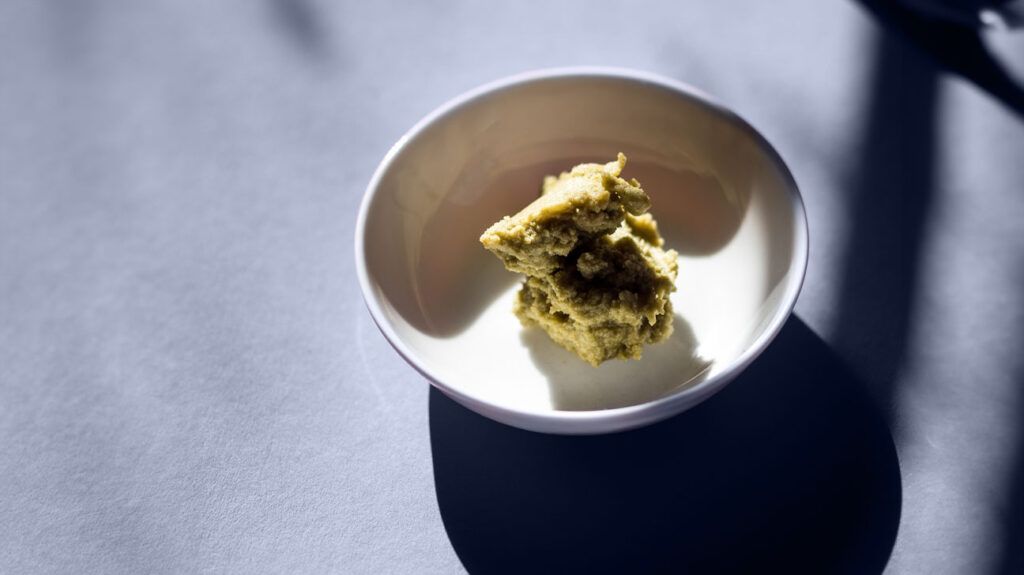
- Aging typically affects the brain and a person’s cognition.
- Certain foods and spices are known to have “brain-boosting” powers.
- Researchers from Tohoku University have found that the spice wasabi — or Japanese horseradish — may help improve certain areas of cognitive function in older adults.
As we age, several things
Common symptoms of aging-related
Previous research shows many
Certain foods have also been shown to have “brain-boosting” powers, such as berries, oily fish, eggs, and kale. Some
Now, researchers from Tohoku University in Japan have found the spice wasabi — traditionally served as a condiment in Japanese cuisine — may help improve certain areas of cognitive function in older adults.
The study was recently published in the journal Nutrients.
Wasabi — also known as Japanese horseradish — is a plant native to Japan and certain parts of Russia and Korea.
It is a member of the
Wasabi is a rhizome, meaning it grows underground and the root is used. Traditionally the wasabi root is grated to form a fresh paste. Freshly grated wasabi is aromatic and slightly spicy, similar to horseradish or hot mustard.
Researchers have investigated the potential benefits of wasabi in cell culture, animal models, and in people. Some of this past research shows wasabi could have several health benefits, including:
- high levels of
vitamin C for immune system support anti-inflammatory propertiesantibacterial effects- protect against
neurodegenerative disorders - supports
heart health - help with
weight loss - improve
gut health - boost
bone health sleep and fatigue improvementanticancer attributes
For this study, researchers recruited 72 Japanese adults between the ages of 60 and 80. Study participants were asked to either take a wasabi tablet including 0.8 milligrams of 6-methylsulfinyl hexyl isothiocyanate (
Participants were given cognitive and memory tests before and after the 12 weeks that tested a variety of areas, including working memory, attention, processing speed, and episodic memory.
At the conclusion of the study, the research team found participants who took the wasabi supplement containing 6-MSITC showed a significant improvement in both working and episodic memory performances compared to those who took the placebo tablet.
However, the scientists reported they did not find any significant improvements in other cognitive areas.
After reviewing this study, Dr. Clifford Segil, a neurologist at Providence Saint John’s Health Center in Santa Monica, CA, told Medical News Today that while wasabi is reasonable to eat, he is not convinced by the data that it has cognitive benefits.
“As a clinician who treats patients with memory loss and dementia, I am always looking for something to help my patients as modern medicine is not as good at treating memory loss as other neurological conditions,” Dr. Segil continued. “Smart foods are often being touted by different interest groups, and I wish the results in these clinical studies were visible in clinical practice.”
“I would like to see this repeated in a large group of patients with a standardized cognitive test. I would like to see an attempt made to standardize the amount of wasabi consumed in these patients,” he added.
MNT also spoke about this study with Monique Richard, a registered dietitian nutritionist, owner of Nutrition-In-Sight, and national media spokesperson for the Academy of Nutrition Dietetics.
Richard said that this study provided additional affirmation of the powerful benefits we continue to learn about in plants, herbs, and spices traditionally used and consumed for thousands of years in Eastern and Ayurvedic medicine and cultures around the world.
“The specific tie to cognitive enhancement is interesting and worth investigating further. I would like to see if the outcomes could be duplicated with wasabi in food form versus a supplement and if other variations or species of the plant, such as horseradish, would produce similar outcomes for ease of availability, application, and use,” she added.
When it comes to preventing cognitive decline, Dr. Segil advised structure later in life, which he says is therapeutic, and taking formal classes to stimulate the brain and maintain cognition.
“Being
And for those who want to protect aging cognition through diet, Richard said there are other specific nutrients known to be beneficial in supporting cognitive function, including magnesium, folate, B6, zinc, D, and omega-3.
“Foods such as spinach, broccoli, black beans, kidney beans, nuts, seeds, bananas, whole grains, fatty fish such as salmon and sardines, flaxseed, chia seeds, walnuts, egg yolks, and fortified foods are examples of the variety of options rich in some of these specific nutrients,” she detailed.
Cognitive health will also be supported by a healthy gut microbiome, Richard said, which in turn helps neurotransmitter conduction, executive function and neuron health.
“[Good gut health] can be nurtured with prebiotics such as garlic and onions, foods rich in fiber such as whole grains, beans, legumes, fruits, and vegetables, and a variety of herbs and spices such as turmeric, pepper, cardamom, cinnamon, (and) cloves, for example, as well as probiotics and fermented foods.”
— Monique Richard
“A diet lower in refined sugar — i.e. cookies, cakes, bread, crackers, (and) soft drinks — can also prevent glycosylation — coating of sugar, glucose — of vessels, nerves, and arteries which can also interfere with cognitive function — think ‘foggy brain’ or ‘forgetfulness’. What does our body good, also does our brain good,” Richard added.